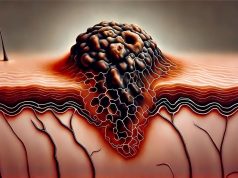Introduction of immune checkpoint inhibitors linked to widening disparity for those with private insurance versus those without insurance
By Elana Gotkine HealthDay Reporter
FRIDAY, July 11, 2025 (HealthDay News) — The introduction of immune checkpoint inhibitors (ICIs) was associated with a widening survival disparity between those with private insurance and those without health insurance, according to a study published online July 7 in JAMA Network Open.
Jingxuan Zhao, Ph.D., M.P.H., from the American Cancer Society in Atlanta, and colleagues conducted a cross-sectional study involving adults who received a new diagnosis of stage IV melanoma (12,048), non-small cell lung cancer (NSCLC; 152,610), or renal cell carcinoma (18,782) who were identified before and after U.S. Food and Drug Administration approval of ICIs. A six-group propensity score-weighting difference-in-differences (DID) approach was applied to examine changes in survival before and after ICI approval among individuals without insurance or with Medicaid versus those with private insurance for each type of cancer.
The researchers found that for those with a diagnosis of melanoma, two-year overall survival rates increased post-ICI approval among uninsured individuals (16.2 to 28.3 percent) and those with private insurance (28.7 to 46.0 percent), resulting in a widening disparity of 6.1 percentage points after adjustment for sociodemographic characteristics. The survival disparity between people without insurance and those with private insurance widened to 1.3 percentage points among people with a diagnosis of NSCLC. No significant changes were seen in survival differences between people with Medicaid and those with private insurance with the introduction of ICIs.
“Expanding Medicaid to individuals without health insurance coverage may improve their access to effective cancer treatments that are also costly, such as ICIs,” Zhao said in a statement.
One author disclosed ties to Pfizer and PRIME Education.
Copyright © 2025 HealthDay. All rights reserved.








